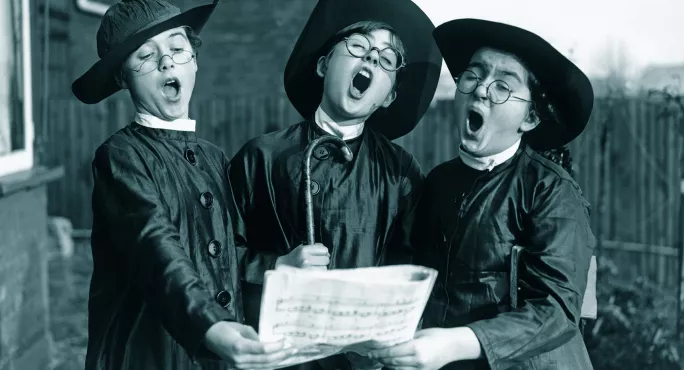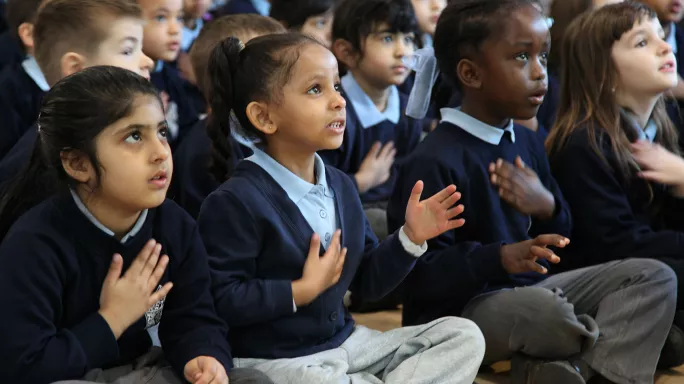Starting the day with hymns used to be a staple of British school life.
Hundreds of students sat cross-legged on the cold floor of the school hall, singing their hearts out about creatures great and small, keeping their oil lamps burning and imploring Jesus to shine.
But the tradition is fading out.
Quick read: The importance of music and singing in early development cannot be underestimated
Quick listen: How to teach a child a lesson for life
Want to know more? Why pupil friendships should be encouraged
Although state-funded schools in England and Wales are still legally required to provide “a daily act of worship”, exemptions are increasingly common and many schools just ignore the requirement (it hasn’t been checked by Ofsted since 2004).
But it seems that in losing hymns, we may be losing a lot more, according to research published by the Royal Society.
Researchers studied the effects of singing on social cohesion, exploring the hypothesis that it may have evolved as a way to “quickly bond large human groups of relative strangers, potentially through encouraging willingness to coordinate”.
For the study, they set up a series of adult education classes, with some teaching singing and others looking at writing and other creative crafts.
At the end of seven months, all of the groups showed the same level of connectedness, but the singing groups had “a significantly greater increase in closeness” after just one month.
So, what can schools learn from this? According to evolutionary psychologist Robin Dunbar, one of the authors of the study, they should be looking at the way students’ time is divided up and maximising their opportunities to build those social links.
“There are things we do in larger groups that are extremely good for social bonding and therefore create friendships,” he says.
“These are things like singing, dancing, playing physical team sports and storytelling. All of those activities trigger the endorphin system and that’s why we use them in social contexts: to bond a community.
“And, of course, they are also things that schools have stopped doing.”
Wellbeing over worship
He says that he has repeatedly made “a big pitch” for singing in schools, including during his time as a governor in a large comprehensive.
And that singing need not be tied to any act of worship, he continues, as the benefits will come whatever the students are warbling.
“It doesn’t matter what the content is, the fact is that just singing and singing together creates these bonds,” he says.
“Singing is so effective in this context. It’s instantaneous. We actually refer to it as the ‘icebreaker effect’.
“Just half an hour of communal singing, as in round the campfire, can turn people from strangers into almost intimate friends.”
Singing for its own sake
Timetable pressures mean that finding even 30 minutes for a singalong would be a challenge in most schools, particularly secondaries.
But just as problematic is the belief that music in school has to mean results, rather than just enjoyment, Dunbar points out.
“Everybody goes: ‘We must have music, we must have music’, but then what they mean is turning people into Yehudi Menuhin.
“What they should be saying is, ‘Forget all the instruments, you can do that at home - let’s just have communal singing for half an hour’.”
If schools could find a way to make that space, he says, the positive impact could be felt far beyond the assembly hall, with knock-on effects in both pastoral and academic life.
“I reckon if you do that, you’ll never need to have metal detectors at the school gates, you’ll get a lot less bullying and the whole community will just work better.
“And the kids will work harder because if you ramp up the endorphin system, then it allows you to focus your attention and do intellectual work much much better.”





